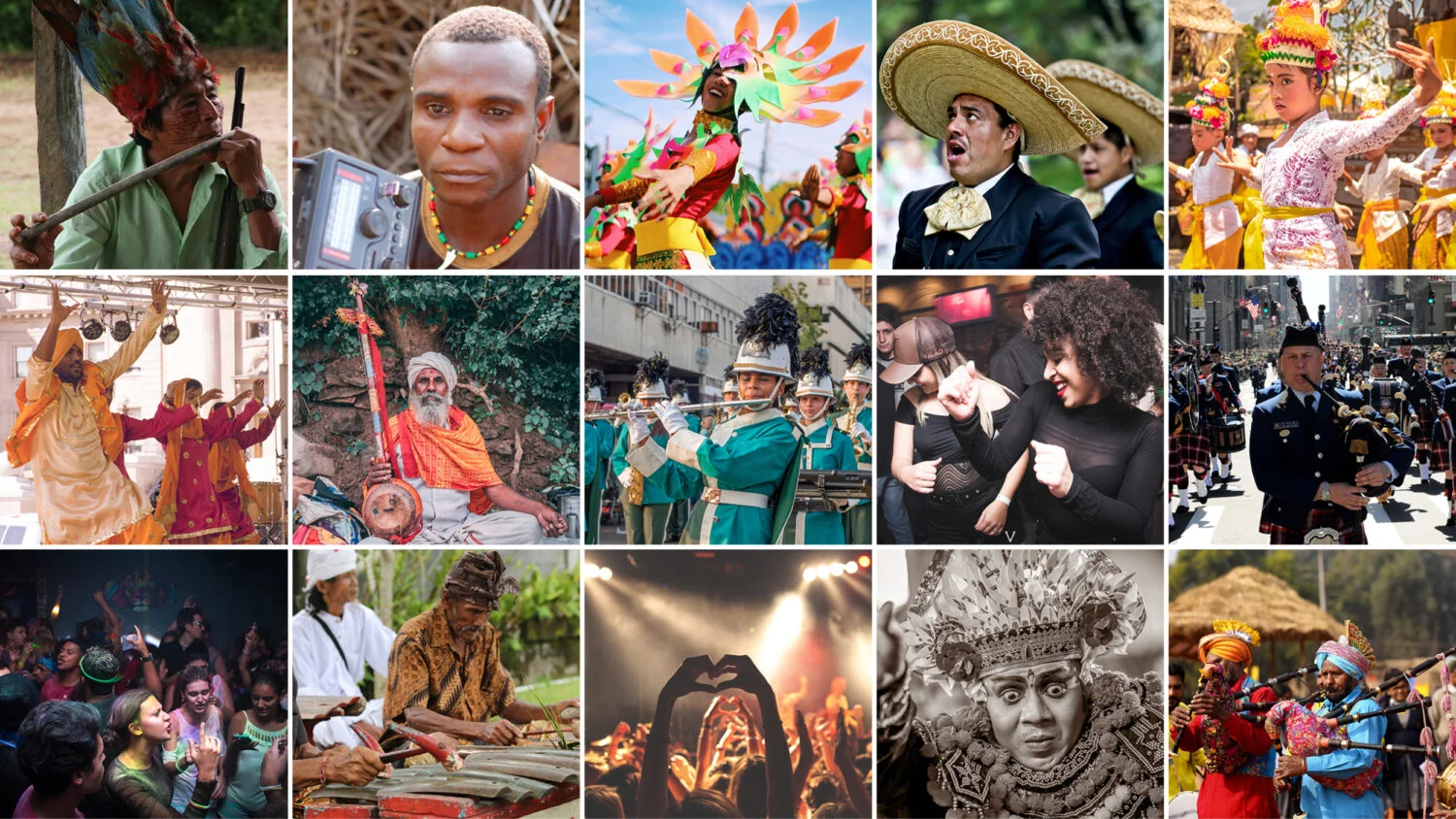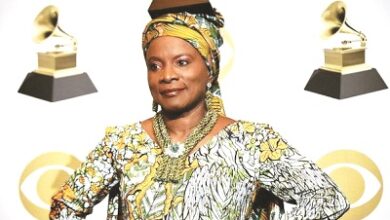
Music has long been heralded as a universal language, understood and appreciated by people from all walks of life and all corners of the globe. Whether it be a traditional folk song from a small village or the latest pop anthem sweeping the charts, music speaks to the hearts and minds of listeners in a way that transcends words. By utilizing music as a universal language, we can bridge the gap between cultures and people, helping to create a more peaceful and unified world. In this blog post, we will explore how music has been used to bridge cultural divides and bring people together.
The Power of Music
Music has the power to bring people together, no matter their language, race, or culture. The use of music as a universal language and source of unity in the world today is an incredible phenomenon. Music is an art form that can be used to express emotions, convey a message, and evoke powerful feelings within us. It can connect us with those from distant places, allowing us to share experiences and understand one another.
In many cultures, music is more than just a form of entertainment; it is a tool for building relationships, creating shared understanding, and strengthening community bonds. Music is used as a vehicle for communication between people of different backgrounds, helping bridge the gap between cultures. Through shared musical experiences, we can learn about one another and develop a sense of empathy and understanding.
The potential of music to create unity and bridge cultural differences has been recognized by many organizations. Many international events are held each year to celebrate the power of music and its ability to bring people together. From the World Music Day festival in France to TEDx talks on music education in Ethiopia, music is being used as a tool for peace and harmony across the world.
Ultimately, the use of music as a universal language and source of unity in the world today shows that music has the power to transcend language, borders, and cultures. It can be used to bridge divides, build bridges between communities, and foster a spirit of harmony. Whether we’re singing in different languages or simply listening to the same song, music has the power to unite us all.
The Use of Music in Therapy
Music has become a universal language, unifying people and cultures from around the world. This is especially evident in the use of music as a form of therapy. Music has been used to help patients cope with physical pain and emotional distress, as well as to encourage relaxation and healing.
The therapeutic use of music can be traced back to ancient times, where it was used to heal the sick and wounded. Today, music therapy is used in a variety of settings to help individuals manage depression, anxiety, trauma, and other psychological issues. It can also be used to alleviate physical pain, improve cognitive functioning, and aid in rehabilitation after an injury or illness.
Music therapy works by targeting the body’s natural rhythms, using melodies and beats to guide patients into a state of relaxation and self-awareness. This allows them to gain insight into their emotions, behaviors, and thoughts in order to better understand and manage their struggles. Through the use of music, clients are able to learn new ways of coping with stressful situations and begin to see positive changes in their lives.
In addition to its therapeutic benefits, the use of music as a universal language and source of unity in the world today cannot be overstated. By allowing people to connect on an emotional level, regardless of language barriers or cultural differences, music serves as a powerful force for bringing people together. From large concerts to small gatherings, music has the ability to create a shared experience that transcends all boundaries. In this way, music can help bridge the gap between people from different backgrounds and foster a sense of understanding and unity.
Music as a Form of Communication
Music is a powerful form of communication. It has the power to bring people together, build understanding and foster empathy. Music can be used as a language to express emotions, thoughts, and ideas that words alone cannot communicate. In fact, it’s believed that music predates language as a form of communication.
This is especially true when it comes to cultural differences. Different cultures have different styles of music, rhythms and beats. These musical differences can create a bridge between people of different backgrounds and break down barriers between them. By listening to one another’s music, we can learn to appreciate one another’s cultures and better understand each other’s perspectives.
Music can also be used to unite people. When we hear the same song, we feel a common bond with those around us. The shared experience of listening to music creates an emotional connection between people and helps them to empathize with one another. Music is also often used in protest movements as a way for people to make their voices heard. It unifies people from diverse backgrounds who share a common cause and expresses powerful messages in a way that words cannot.
Music is a universal language that can help bridge the gap between people from different backgrounds and cultures. It has the power to bring people together and create understanding between them. It can be used as a form of communication to express emotions, thoughts and ideas that words alone cannot communicate. Through music, we can learn to appreciate each other’s cultures and develop empathy for one another.
The Importance of Music Education
Music education is an invaluable part of any child’s development. It is more than just learning how to play an instrument or singing in a choir. Music education has the power to teach critical thinking, creativity, and collaboration skills. Studies have shown that students who are exposed to music education perform better academically, have improved cognitive abilities, and show better memory retention.
Music can foster a greater appreciation for the world around us. It helps us to think outside of our own perspectives and learn about different cultures and their histories. With the use of music education, children can become aware of their own individual potential as well as their connection to others.
Beyond the academic benefits, music education also provides students with a space to express themselves. Music has been known to help relieve stress and anxiety while providing a creative outlet for students to explore. Learning how to read music or understand musical notation can help children become more confident in their ability to make mistakes and try again until they achieve the desired result.
In a world that is becoming increasingly digitalized, music education remains an important tool for fostering meaningful human connection. It is a language that can transcend all boundaries, providing us with the opportunity to come together, share stories, and express emotions through song. Music education should be a mandatory part of any school curriculum, as it helps to cultivate greater understanding and acceptance within society.
The Impact of Technology on Music
Technology has had a profound effect on music, and how it is consumed and produced. Digital streaming services such as Spotify, Pandora, and Apple Music have revolutionized the industry and made it easier than ever to access music from around the world. People can search through countless catalogs and curate their own libraries with just a few clicks. Additionally, technology has opened up production to anyone with the right tools, creating a diverse, DIY music-making landscape that allows for more opportunities for artists of all genres.
The use of digital audio workstations (DAWs) has also made it easier for music producers to create and manipulate sound. This has led to a greater range of sonic possibilities, allowing producers to craft innovative and genre-bending sounds that would not have been possible with traditional equipment.
Moreover, technology has allowed artists to connect with their fans in ways that weren’t possible before. Through social media platforms like YouTube and Instagram, musicians can interact with their listeners in real-time and share their music, photos, and videos. Technology has allowed music to become more accessible and widespread than ever before, allowing people to discover new genres and explore musical worlds that they may have never encountered without the aid of technology.
In conclusion, technology has changed the way we experience and make music in many ways. It has allowed us to access an almost endless catalog of music, expanded our production capabilities, and opened up a world of connection between musicians and fans. Technology has undoubtedly had a huge impact on the music industry, and it looks like this trend is only going to continue as time progresses.
The Future of Music





